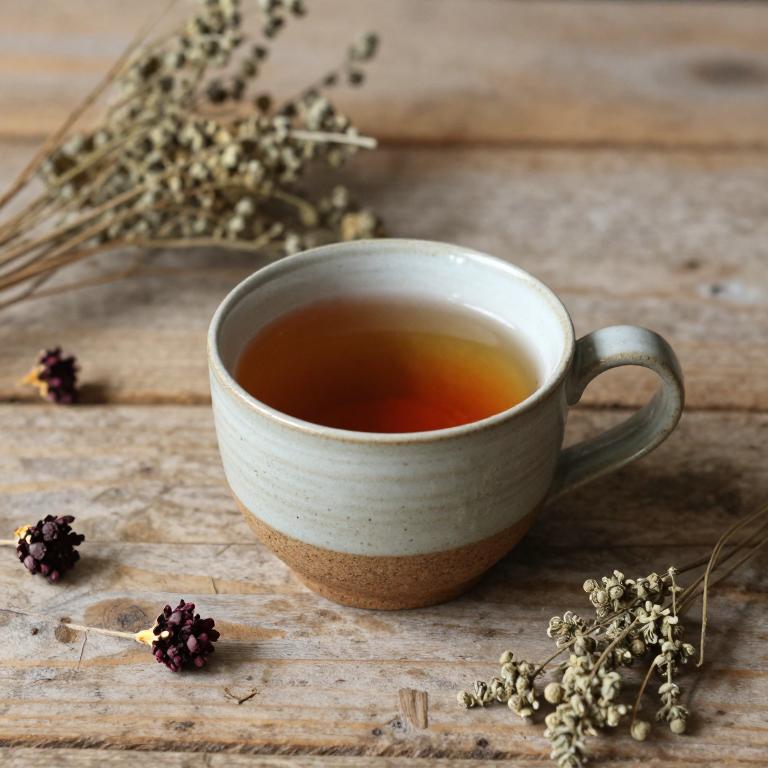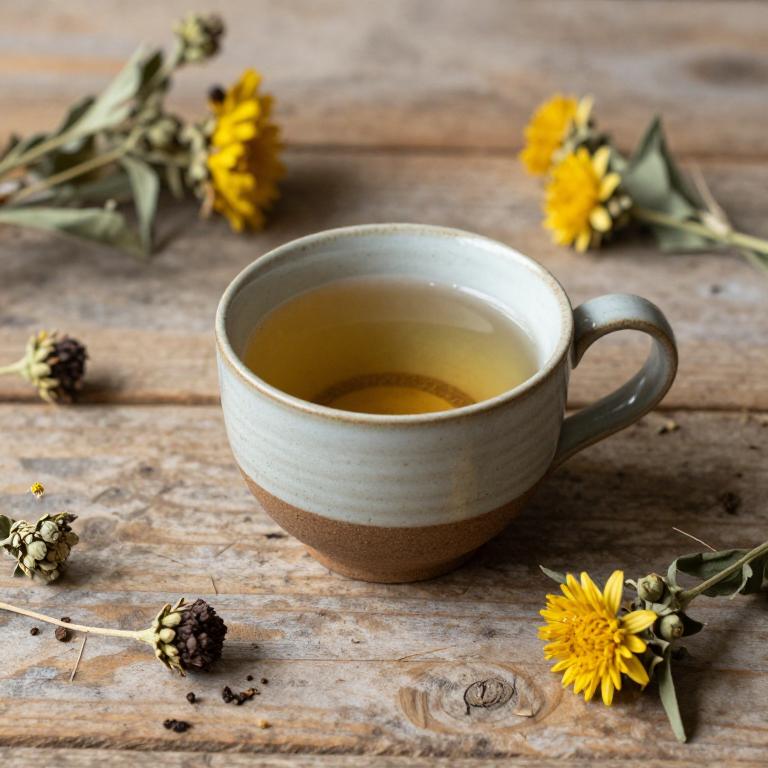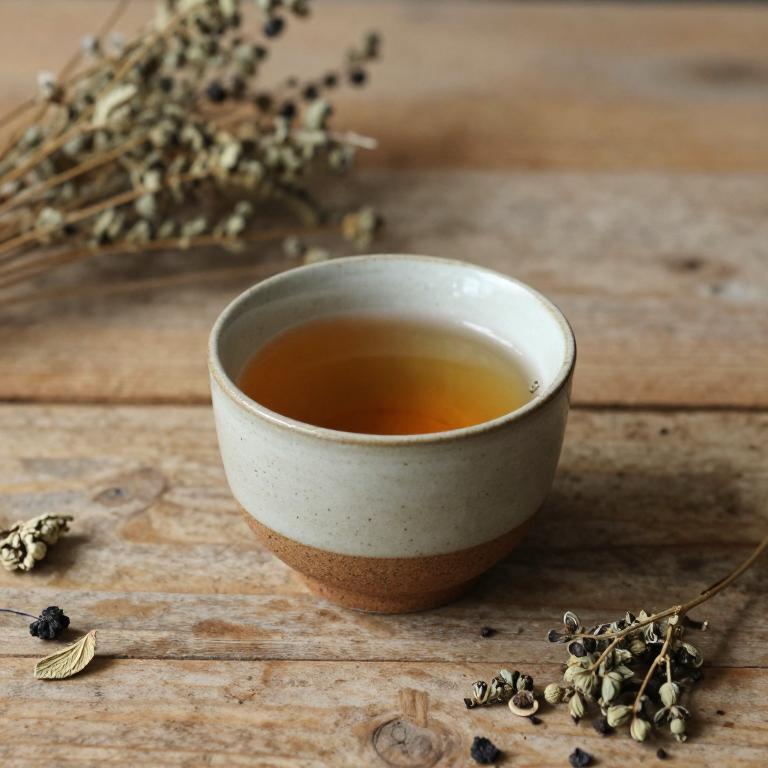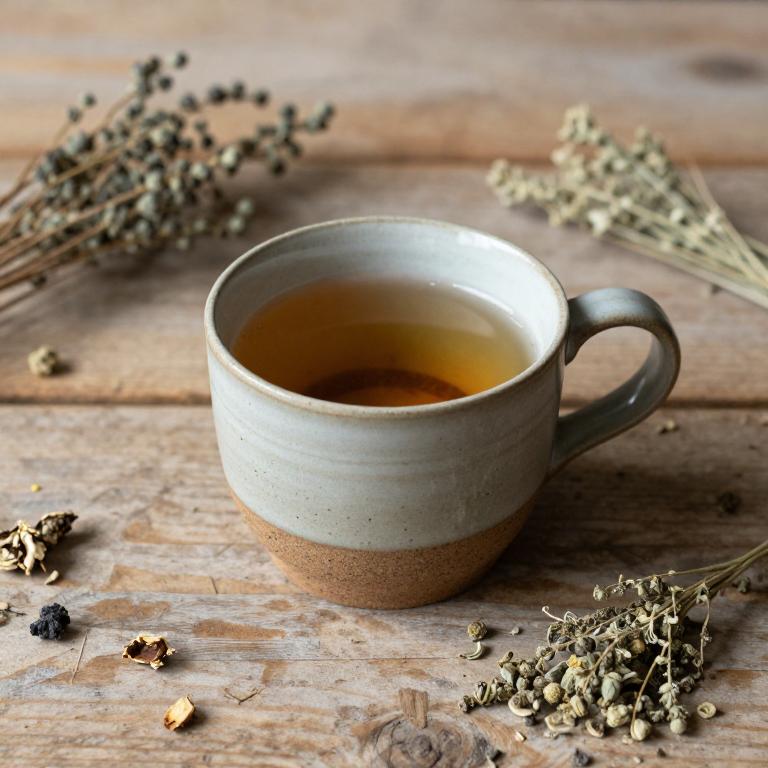10 Best Herbal Teas For Menopause

Herbal teas are a natural and soothing option for women experiencing menopause, offering relief from common symptoms such as hot flashes, anxiety, and insomnia.
Ingredients like black cohosh, red clover, and sage are commonly used in herbal blends to help balance hormones and reduce discomfort. These teas are typically caffeine-free, making them a gentle alternative to pharmaceutical treatments. Many women find that regular consumption of herbal teas supports emotional well-being and promotes a sense of calm during this transitional phase.
However, it's important to consult with a healthcare provider before starting any new herbal regimen to ensure safety and appropriateness for individual health needs.
Table of Contents
- 1. Chaste tree (Vitex agnus-castus)
- 2. Black cohosh (Cimicifuga racemosa)
- 3. Stinging nettle (Urtica dioica)
- 4. Field horsetail (Equisetum arvense)
- 5. Licorice (Glycyrrhiza glabra)
- 6. Heartworts (Leonurus cardiaca)
- 7. Cabbage palm (Sabal serrulata)
- 8. Pueraria mirifica (Pueraria mirifica)
- 9. Maca (Lepidium meyenii)
- 10. Blessed thistle (Cnicus benedictus)
1. Chaste tree (Vitex agnus-castus)

Vitex agnus-castus, commonly known as chasteberry, is a popular herbal remedy used to support women during menopause.
This herb is believed to help regulate hormonal imbalances, particularly by influencing the production of luteinizing hormone and prolactin, which can alleviate symptoms such as hot flashes and mood swings. Chasteberry tea is often consumed as a natural alternative to conventional hormone replacement therapy, offering a gentler approach for those seeking symptom relief. It is typically taken in the form of a tincture or infusion, with a recommended daily dosage varying based on individual needs and guidance from a healthcare provider.
While research on its effectiveness is ongoing, many women report positive outcomes when using vitex agnus-castus as part of a holistic menopause management plan.
2. Black cohosh (Cimicifuga racemosa)

Cimicifuga racemosa, commonly known as black cohosh, is a popular herbal remedy used to alleviate menopausal symptoms such as hot flashes, night sweats, and mood swings.
It has been traditionally used in European and Native American medicine for its potential hormonal balancing properties, though it is not a hormone replacement therapy. Studies suggest that black cohosh may help regulate the hypothalamic-pituitary-ovarian axis, which plays a key role in managing menopausal transitions. However, its safety and long-term effects require further research, and it should be used under the guidance of a healthcare professional.
Men considering herbal teas like black cohosh should be aware of possible interactions with other medications and potential side effects, such as gastrointestinal discomfort or breast tenderness.
3. Stinging nettle (Urtica dioica)

Urtica dioica, commonly known as stinging nettle, is a herb that has been traditionally used to support women during menopause due to its rich nutritional profile and potential hormonal balancing effects.
Herbal teas made from stinging nettle leaves are often consumed to alleviate symptoms such as hot flashes, mood swings, and sleep disturbances associated with menopause. The tea is believed to support the body's natural detoxification processes and may help reduce estrogen dominance, which is a common concern during this phase of life. Additionally, stinging nettle is high in antioxidants, vitamins, and minerals that contribute to overall wellness and may help manage the physical and emotional challenges of menopause.
While it is generally considered safe, it is advisable to consult a healthcare provider before using stinging nettle tea, especially for those with existing health conditions or on medications.
4. Field horsetail (Equisetum arvense)

Equisetum arvense, also known as horsetail, is a traditional herb that has been used for centuries to support women during menopause.
It is rich in silica, which may help strengthen bones and joints, making it beneficial for managing the physical changes associated with menopause. Herbal teas made from equisetum arvense are often consumed to alleviate symptoms such as hot flashes and mood swings due to its mild calming properties. However, it is important to consult a healthcare provider before using horsetail, as it may interact with certain medications or have side effects in some individuals.
Despite its potential benefits, equisetum arvense should be used as part of a holistic approach to menopause management, rather than a standalone treatment.
5. Licorice (Glycyrrhiza glabra)

Glycyrrhiza glabra, commonly known as licorice root, is a traditional herbal remedy that has been used for centuries to support hormonal balance and alleviate menopausal symptoms.
It contains compounds like glycyrrhizin and flavonoids, which may help reduce hot flashes, night sweats, and mood swings associated with menopause. Licorice root tea is often consumed as a mild, soothing beverage that can be easily incorporated into a daily routine. However, due to its potential to increase blood pressure, it is important for menopausal women to consult with a healthcare provider before regular use.
Despite its benefits, licorice root should be used in moderation to avoid adverse effects and ensure safe herbal tea consumption during menopause.
6. Heartworts (Leonurus cardiaca)

Leonurus cardiaca, commonly known as motherwort, is a traditional herbal remedy often used to support women during menopause.
This herb is believed to help alleviate common menopausal symptoms such as hot flashes, night sweats, and mood swings due to its calming and hormonal balancing properties. Herbal teas made from Leonurus cardiaca can be prepared by steeping the dried leaves and flowers in hot water, offering a soothing and nourishing beverage. Many women find that regular consumption of motherwort tea helps promote emotional stability and overall well-being during this transitional phase.
However, it is advisable to consult with a healthcare provider before using this herb, especially if taking other medications or experiencing underlying health conditions.
7. Cabbage palm (Sabal serrulata)

Sabal serrulata, also known as the saw palmetto, is a popular herbal remedy used to support women during menopause.
This plant, native to the southeastern United States, has been traditionally used for its potential to alleviate symptoms such as hot flashes, mood swings, and sleep disturbances. When brewed into a tea, Sabal serrulata may help regulate hormonal balance and reduce the intensity of menopausal symptoms. Its benefits are often attributed to its ability to inhibit the enzyme 5-alpha reductase, which may help in managing estrogen levels.
While generally considered safe, it is advisable to consult a healthcare provider before incorporating Sabal serrulata into a menopause management routine.
8. Pueraria mirifica (Pueraria mirifica)

Pueraria mirifica, also known as Kwao Krua, is a traditional herbal remedy that has gained attention for its potential benefits in managing menopausal symptoms.
This herb is native to Southeast Asia and has been used for centuries in traditional medicine to support hormonal balance and overall well-being. Pueraria mirifica contains phytoestrogens, which may help alleviate common menopausal issues such as hot flashes, night sweats, and mood swings. Herbal teas made from Pueraria mirifica are often consumed as a natural alternative to hormone replacement therapy.
However, it is important to consult a healthcare provider before using this herb, as it may interact with certain medications and is not suitable for everyone.
9. Maca (Lepidium meyenii)

Lepidium meyenii, commonly known as Maca, is a root vegetable native to the high Andes of Peru and has been traditionally used for its potential health benefits.
Herbal teas made from Maca are increasingly popular for managing menopausal symptoms due to their adaptogenic properties, which may help balance hormone levels and reduce stress. These teas are believed to support energy levels, mood stability, and overall well-being during the transition through menopause. Maca tea is typically prepared by drying and grinding the root, then steeping it in hot water, making it a convenient and natural option for many women.
However, while research is ongoing, it is advisable to consult a healthcare provider before using Maca tea, especially for those with pre-existing medical conditions or who are taking other medications.
10. Blessed thistle (Cnicus benedictus)

Cnicus benedictus, also known as blessed thistle, is a herb traditionally used to support women's health, including during menopause.
This herb is believed to help alleviate common menopausal symptoms such as hot flashes, mood swings, and sleep disturbances due to its adaptogenic properties. Blessed thistle contains compounds that may help regulate hormonal balance and improve digestion, which can be particularly beneficial during this transition period. Herbal teas made from Cnicus benedictus are often consumed as a natural alternative to conventional menopause treatments.
However, it is important to consult with a healthcare provider before incorporating this herb into a menopause management routine, especially for those with existing medical conditions or on medication.